While we love to trek, travel, and adventure, our treks often take us to different regions and countries. Our treks expose us to diverse cultures, people, land, and traditions. The one thing we have noticed that comes extremely handy is learning a little bit about the land you’re trekking/traveling to. Language plays a prominent role in helping one familiarize themselves with any new land. It is always a good idea to learn a few easy words that are commonly used in any language before you visit the place. During my extended visit in Nepal when I was leading two trek groups to Everest Base Camp & Annapurna Circuit Trek, I picked up a few Nepali phrases used commonly by the locals which will help any trekker navigate their way through the land easily.
Here’s my list of common Nepali phrases you should know about before visiting Nepal
1. Hello = Namaste
In Nepali culture, people usually say namaste to their elders instead of hello. When a person meets an unknown person, he/she is used to saying Namaste (Hello). It is also their religious practice.
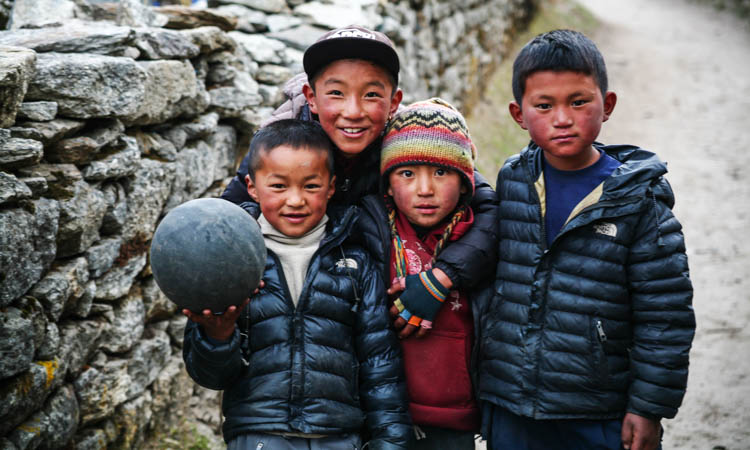
2. Okay = La La
One of the very commonly used phrases in Nepali. Mostly in each and every sentence of everyone’s communication.
3. Thank You = Dhanyavad
Dhanybhad means thank you. It’s a symbol or gesture that you admire one’s efforts or when you want to thank someone for their help or assistance.
4. Elder Brother = Dai
5. Younger Brother = Bhai
6. Elder Sister = Didi
7. Younger Sister = Bainee
Not only would you use these when speaking to a sibling, but you can also use these pronouns when speaking to a friend to make them feel like part of your family.
8. Nanu = Girl Child
9. Babu = Boy Child
10. Good Night = Subha Ratri
A simple and very easy to greet people with a Good Night.
11. Excuse Me or Sorry = Hajur
To get the attention of someone, use the word “hajur.” It is viewed as good manners. It is also commonly used over phone calls instead of a “hello”.
12. Goodbye = Tata / Alvida
You say goodbye or Alavida if you or anyone leaves. It is a normal gesture commonly used by Nepali people.
13. Village/Hamlet = Che
A small village or hamlet. Example: Namche, Periche, Tengboche, Dingboche, Lobuche, etc
14. Mountain = Ri
Ri” means mountain in the Sherpa language. Example: Mount PumorRi, here ‘Pumo’ means daughter and ‘Ri’ mountain in Sherpa language.
15. Everest = Sagarmatha
Mount Everest is most commonly known by its Tibetan name, Chomolungma, which means “Goddess Mother of the World” or “Goddess of the Valley.” The Sanskrit name Sagarmatha means literally “Peak of Heaven.” Mount Everest was also previously referred to as Peak XV, it was renamed for Sir George Everest in 1865.
16. Male = Sherpa
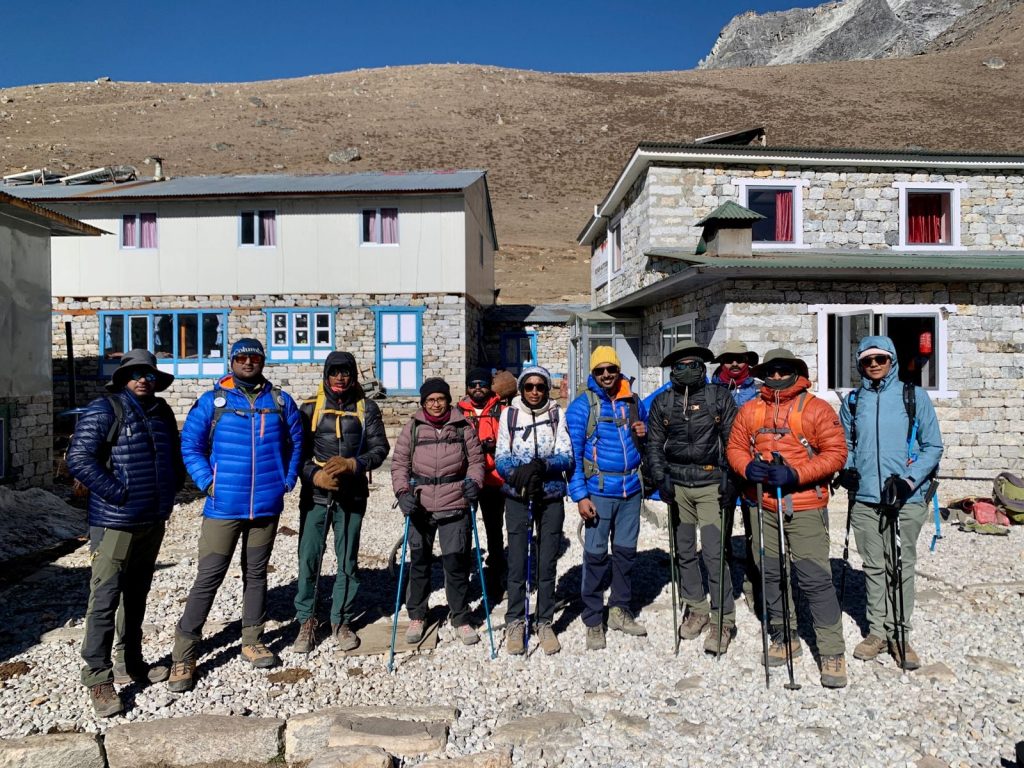
17. Female = Sherpini
The Sherpa people are an ethnic group from Nepal who has lived in the high altitudes of the Himalayas for generations. They have long served as guides and porters, whose local expertise has been invaluable for foreigners attempting climbs in the area.
18. Money/Cash = Paisa
The currency used in Nepal is NPR(The Nepalese Rupee)
19. Yak (male) = Yak
20. Yak (female) = Nak
21. Dzo/Dzopke = Hybrid of Yak and Cow
A dzo is a hybrid between the yak and domestic cattle. The word dzo technically refers to a male hybrid, while a female is known as a dzomo or zhom. There is also the English language portmanteau term of yattle, a combination of the words yak and cattle, as well as yakow, a combination of the words yak and cow.
22. Dudh Kosi = Milk River
Dudh Kosi means “milk river” in the Nepali language, called so because of its frothy waters, white with cold. The Dudh Kosi originates on the southern slopes of Mount Everest and rushes down the valley named after it in the Khumbu region, before it joins the Sun Kosi River on its southeastern journey to India.
23. Bhote Kosi = Tibetan River
Bhote Koshi in Nepal and Poiqu in Tibet, both names roughly mean “Tibetan river,” is the name given to the upper course (main tributary) of the Sun Kosi river.
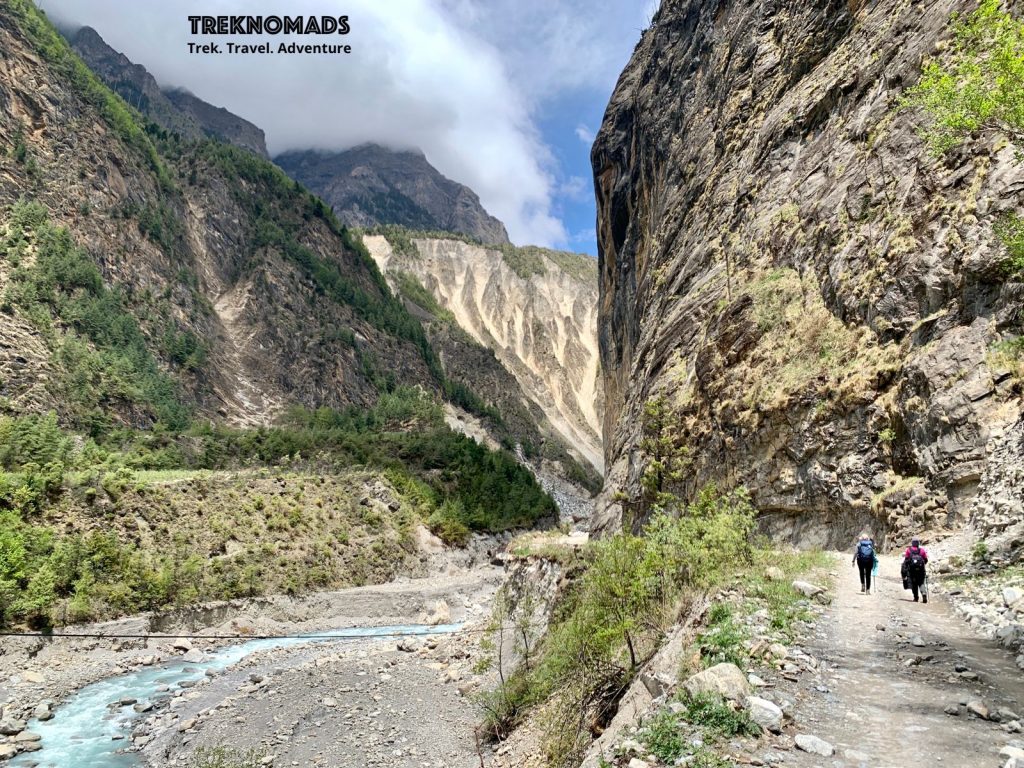
24. Dal Bhat = Vegetarian Meal/ Staple Food
Dal bhat is often served with vegetable tarkari or torkari – a mix of available seasonal vegetables. It is also called Dal Bhat Tarkari in Nepali and Bengali. A small portion of pickle (called achar or loncha) is sometimes included.
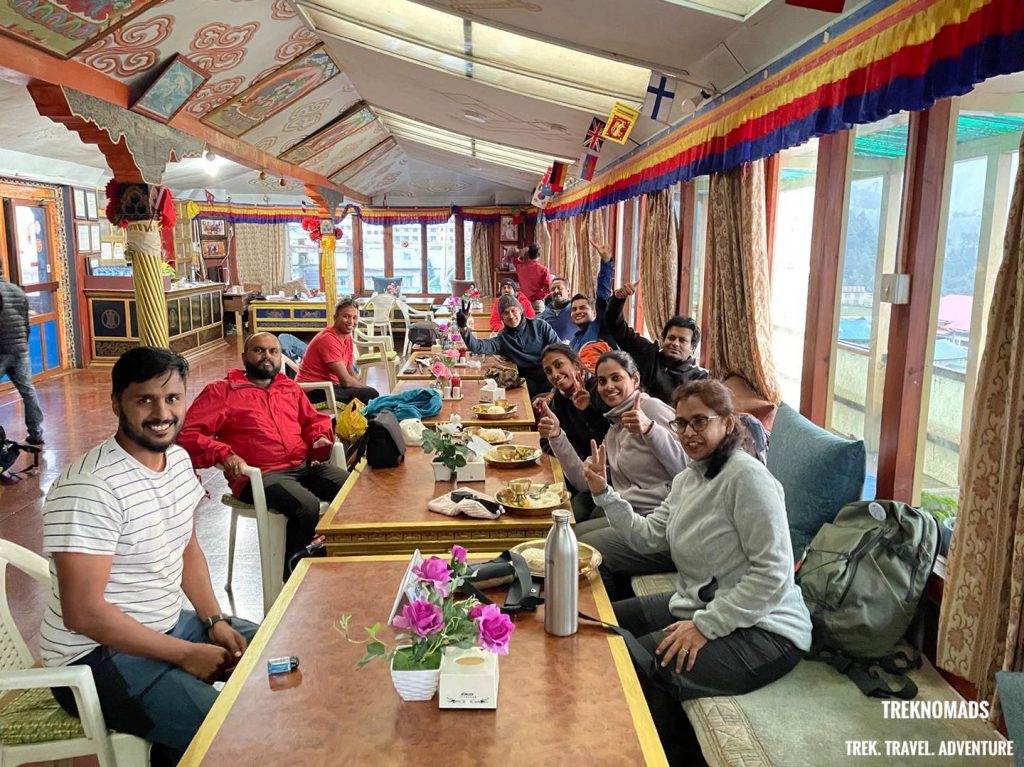
25. Shakpa = Sherpa Stew
SHAKPA (Sherpa stew) Simple, soulful, hearty & nutritious, Shakpa is one of the most loved, enjoyed and popular Sherpa food. Made with simple vegetables and meat (Optional), this Himalayan recipe is a must-try.
26. Tashi Delek = Namaste/ Hello / Good luck
Tibetan expression used in greeting, congratulation, and good-luck wishes. It is also used in Bhutan and in North East India in the same way. “Tashi Delek” is associated with Losar, the festival of the lunisolar new year.
27. Tato Pani = Hot Water
28. Pokhari = Pond/Lake
29. Pokhara = City of Lakes
30. Om Ma Ni Pad Me Hum = Tibetan and Buddhism Prayer
A six-syllable mantra associated with the Avalokiteshvara or the protector. A mantra is a sound, word, or syllable used in meditation and capable of creating transformation when chanted. Tibetans interpret the mantra as the “Praise to the jewel in the lotus”.
The first word in the mantra is Om is a sacred syllable across religions including Buddhism, Hinduism, and Jainism. Mani means “bead” or “jewel,” Padme is the sacred Buddhist flower of “lotus,” and Hum denotes the spirit of enlightenment. Tibetan and Buddhism religious practitioners widely use this mantra.
31. Tongba = Hot Beer
A Limbu millet-based alcoholic beverage found in the eastern mountainous region of Nepal and the neighbouring Darjeeling and Sikkim. It is the traditional and indigenous drink of the Limbu people as well as people of other Kirati communities and many other ethnic groups of Nepal.
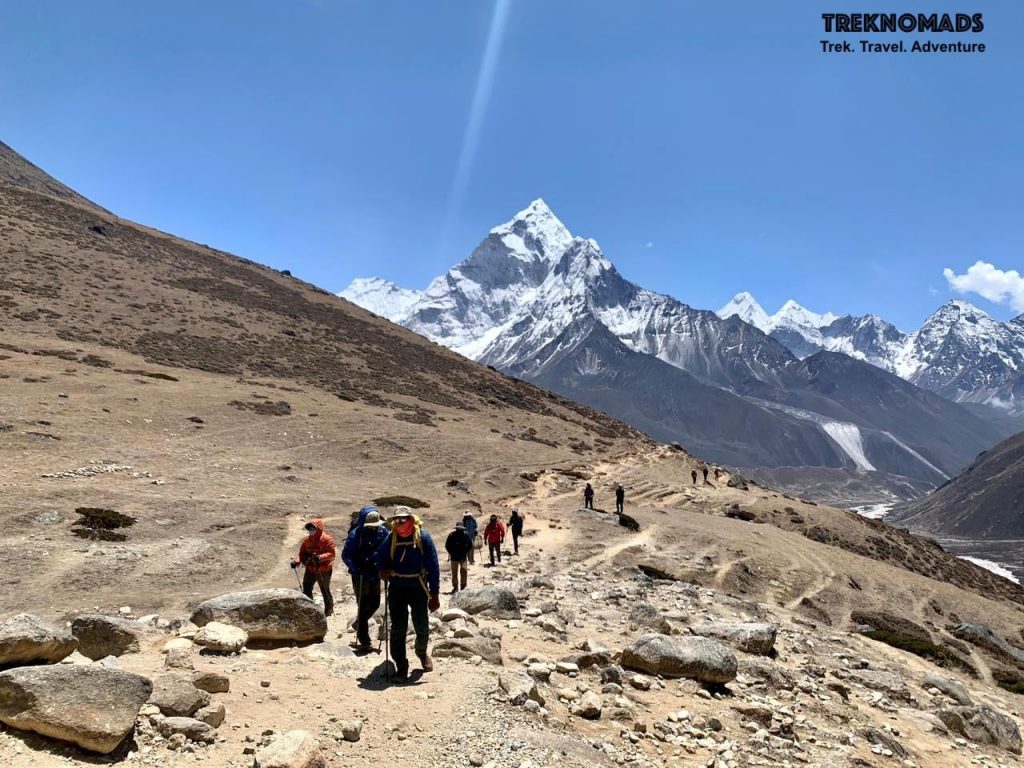
32. Raksi = Nepali Traditional Alcoholic Drink
It is the Nepali term for a traditional distilled alcoholic beverage in Nepal, India (Darjeeling, Sikkim) and Tibet. Raksi is a strong drink, clear like vodka or gin, tasting somewhat like Japanese sake. It is usually made from kodo millet (kodo) or rice; different grains produce different flavors. It is made by distilling a chhaang, a brewed alcoholic drink.
Recommened Reading: A detailed guide on Everest Base Camp Trek
33. Pasal = Shop/Store/Stall
34. Khada/Khata/Khatag = Ceremonial Scarf
It is a traditional ceremonial scarf in Tibetan Buddhism. It originated in Tibetan culture and is common in cultures and countries where Tibetan Buddhism is practised or has a strong influence. The khata symbolizes purity and compassion and is worn or presented with incense at many ceremonial occasions, including births, weddings, funerals, graduations and the arrival or departure of guests. When given as a farewell gesture it symbolizes a safe journey.
35. Right = Dahine
36. Left = Bayei
37. Kasto Cha? = How are you?
38. Thik Cha = I am fine
39. Maile bhujhina = I don’t understand
40. Maile bhujhe = I understand
41. Kati? = How Much?
42. Bato = Road
Days of the week in Sherpa Language
- Sunday –> Nima
- Monday –> Dawa
- Tuesday –> Mingma
- Wednesday –> Lakpa
- Thursday –> Phurba
- Friday –> Pasang
- Saturday –> Pemba
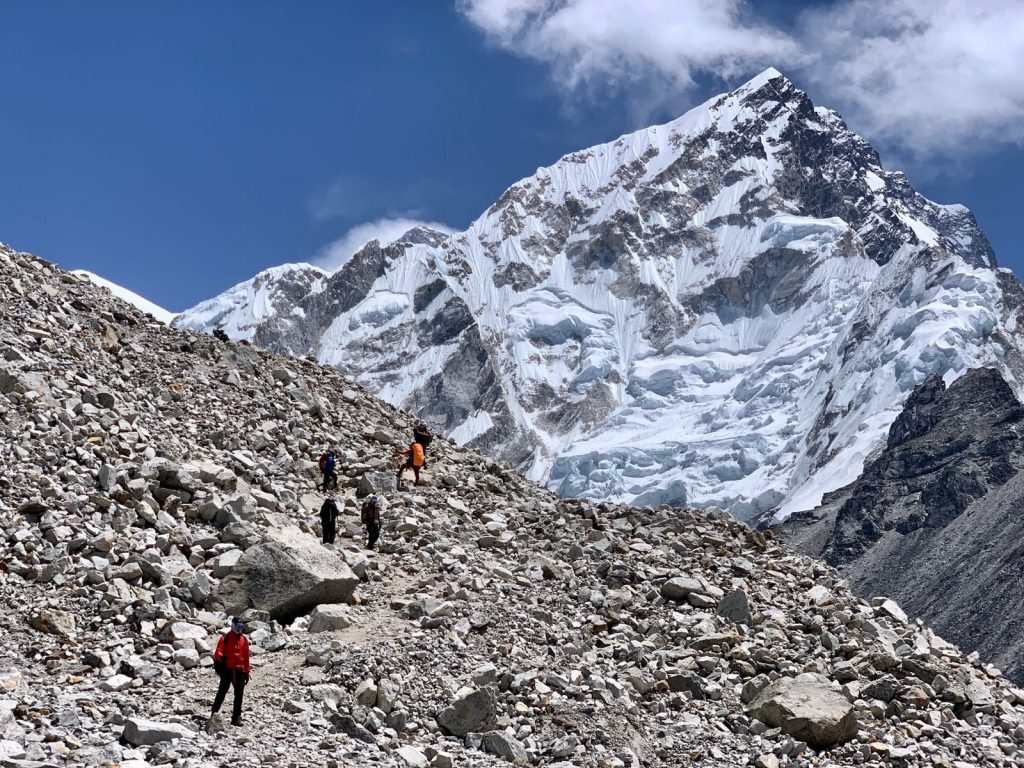
Another interesting fact is that almost all the Sherpa’s names are basis the day they were born.
This list of commonly used Nepali phrases was compiled by our Founder & Director – Naveen Mallesh.
Recommened Reading: Everest Base Camp FAQs
The Ultimate List of things to pack for the Everest Base Camp Trek
Everest Base Camp Guide: All You Need to Know About The Trek
If you’re thinking of visiting Nepal and like this list of Nepali phrases, then you should definitely consider looking at some of the treks we offer in Nepal. Click here to know more.

There is a lot of mistake please correct it.
Please share it with us so that we can correct it.